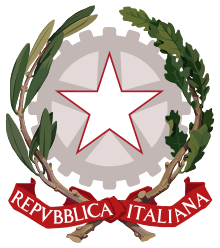Greece–Italy relations
 |
|
Greece |
Italy |
|---|---|
Greece and Italy enjoy special and strong bilateral diplomatic relations. They cooperate in many fields and share common political views about the Balkans, the region and the world, with Italy being a major trading partner of Greece, both in exports and imports. The two countries also cooperate in the fields of energy and tourism.
Greece and Italy are leading supporters of the integration of all the Balkan states to the Euro-Atlantic family, and promoted "Agenda 2014", proposed by the Greek Government in 2004 as part of the EU-Western Balkans Summit in Thessaloniki, to integrate the Western Balkan states into the European Union by the year 2014, when Greece and Italy assumed the rotating Presidency of the European Union for the first and second halves of 2014, respectively.
The two countries are EU states, UN and NATO member states, and cooperate in many other multilateral organizations, such as the Organization for Security and Co-operation in Europe, the World Trade Organization, and the Union for the Mediterranean.
History
Greece (which had gained its independence in 1832) and Italy established diplomatic relations in 1861, immediately upon Italy's unification.[1]
Shortly after the Dodecanese islands gained independence from the Ottoman Empire in 1912, Italy occupied them as the Italian Islands of the Aegean. Starting in 1936, the Italian administration pursued a policy of Italianization.
In 1923, a boundary dispute between Greece and Albania was referred to a commission of the League of Nations chaired by the Italian general Enrico Tellini. The Greek delegate accused Tellini of favoring Albania. When Tellini was killed by unknown assailants, Italian and Albanian sources blamed Greece. In the following dispute, known as the Corfu incident, Italy attacked Corfu and occupied it for a month until Greece capitulated to Italy's demands.
Italy, an Axis power, invaded Greece in the Greco-Italian War of 1940-41, but it was only with German intervention that the Axis succeeded in controlling Greece. Italian forces were part of the Axis occupation of Greece.
Italy ceded the Dodecanese to Greece as part of the Treaty of Peace following World War II in 1947.
Today, Greeks live in Italy and Italians live in Greece.
Diplomatic missions
Greece has an embassy in Rome, general consulates in Milan and Naples, a consulate in Venice, and honorary consulates in Trieste (General), Turin (General), Ancona, Catania, Livorno, Bari, Bologna, Brindisi, Florence, Palermo, Perugia, and a Port Consulate in Genova.
Italy has an embassy in Athens, and honorary consulates in Alexandroupoli, Kefalonia, Chania, Chios, Corfu, Corinth, Ioannina, Heraklion, Kavala, Larissa, Patra, Rhodes, Thessaloniki, Santorini, and Volos.
Bilateral relations and cooperation
_(7733619864).jpg)

Greece is one of Italy's main economic partners and they co-operate in many fields, including judicial, scientific and educational, and on the development of tourism, an important sector in both countries. There are regular high-level visits between the two countries,[2] such as the visit of the Greek Prime Minister Antonis Samaras to Italy in July 2014,[3][4] and there are frequent contacts between the two countries at ministerial level on various matters concerning individual sectors.
Current projects between the two countries include the Greece–Italy pipeline (which is part of the Interconnector Turkey-Greece-Italy pipeline (ITGI)), and the Trans Adriatic Pipeline (TAP).
Multilateral organizations
Both countries are full members of many international organizations, including NATO, the European Union, the Council of Europe, the OECD and the WTO. Greece and Italy were also part of the European Territorial Cooperation Programme (2007-2013), for the boost of cross-border cooperation in the Mediterranean Sea.
Cultural interaction
Greek culture in Italy The Hellenic Institute for Byzantine and Post-Byzantine Studies opened in Venice in 1951, providing for the study of Byzantine and Post-Byzantine history in Italy.
Italian culture in Greece The Istituto Italiano di Cultura di Atene in Athens is responsible for promoting Italian culture in Greece.
Ethnic minorities
Greeks have lived in southern Italy for centuries, and are called Griko. There are Italians in Corfu.
Una faccia una razza
The phrase Italian: Una Faccia Una Razza or Greek: Μια Φάτσα Μια Ράτσα (lit. 'one face, one race') is often used to describe the cultural closeness of the two peoples.[5][6][7]
Agreements
- Economic Cooperation (1949)
- Avoidance of double Taxation (1964)
- Delimitation of Continental Shelf Boundaries (1977)
- Protection of the Ionian Sea Marine Environment (1979)
- Cooperation against Terrorism, Organised Crime, and Drug Trafficking (1986)
Notable Visits
- January 2006; State Visit of President of the Hellenic Republic Mr. Karolos Papoulias to Rome.
- December 2006; Visit of the Italian Prime Minister Romano Prodi to Athens.
- March 2007; Official Visit of Greek Foreign Minister Dora Bakoyannis to Rome.
- August 2007; Meeting of Greek Foreign Minister with Italian counterpart Massimo D'Alema in Rome.
- September 2008; State visit of President of the Italian Republic Mr. Giorgio Napolitano to Athens.
- August 2012; Visit of the Greek Prime Minister Mr. Antonis Samaras to Rome.
- September 2012; Visit of President of the Hellenic Republic Mr. Karolos Papoulias to Italy.
- October 2013; Meeting of the Greek Prime Minister Mr. Antonis Samaras with Italian counterpart in Rome.
- July 2014; Visit of the Greek Prime Minister Mr. Antonis Samaras to Italy.
- February 2015; Meeting of Greek Prime Minister Mr. Alexis Tsipras with Italian counterpart Matteo Renzi in Rome.
Transportation
The Italian port cities of Bari, Brindisi, Ancona, Venice and Triest in the Adriatic Sea's Italian coast are connected in an every day basis via passenger Ferries and Freight Ferries, with the Greek port cities of Corfu, Patra, Igoumenitsa and Kalamata, allowing for better transport times by skipping the Balkan peninsula.
See also
References
- ↑ "18 aprile 1861: Grecia" Documents on the establishment of diplomatic relationships with Italy
- ↑ http://www.mfa.gr/italy/it/
- ↑ http://greece.greekreporter.com/2014/07/18/pm-samaras-has-luncheon-with-italian-pm-renzi-in-florence/
- ↑ http://www.ekathimerini.com/4dcgi/_w_articles_wsite1_1_18/07/2014_541490
- ↑ http://www.nerit.gr/eidiseis/politismos/ekthesi-italia-ellada-mia-fatsa-mia-ratsa/
- ↑ http://ec.europa.eu/italy/events/2014/20140914italia_grecia_razza_faccia_it.htm
- ↑ http://www.euractiv.it/it/news/sociale/9564-presidenza-italia-grecia-una-faccia-una-razza.html
External links
- Greek Ministry of Foreign Affairs about relations with Italy
- Greek embassy in Rome (in Italian only)
- Italian embassy in Athens
| |||||||||||||||||||||||||||||||||||||||||
| ||||||||||||||||||||||||||||||||||||||

